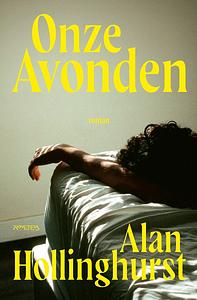Take a photo of a barcode or cover
Like the last few of his novels, this book seems to be interested in time, and in particular it handles the passage of time in a way that I think is pretty special: we get almost vignettes over the course of the narrator’s life from youth to old age in a way that’s passing and cursory (names are dropped as though you know them, but you don’t really because you weren’t there for the backstory) but builds and builds (all in beautiful, straight forward prose) until the final quarter or so, at which point you’re in so deep that the heartbreak of a very good novel ending lines up exactly with that of the end of a very real character’s story.
emotional
reflective
medium-paced
Plot or Character Driven:
Character
Strong character development:
Yes
Loveable characters:
Yes
Diverse cast of characters:
Yes
Flaws of characters a main focus:
Complicated
emotional
hopeful
reflective
sad
slow-paced
Plot or Character Driven:
Character
Strong character development:
Yes
Loveable characters:
Complicated
Diverse cast of characters:
Yes
Flaws of characters a main focus:
Complicated
emotional
reflective
slow-paced
Plot or Character Driven:
Character
Strong character development:
Yes
Loveable characters:
Yes
Diverse cast of characters:
Yes
Flaws of characters a main focus:
No
I really did want to enjoy this book. K was looking forward to it. Too slow paced. Couldn’t see where the story was going. Wasn’t invested in the characters.
challenging
dark
reflective
sad
slow-paced
Plot or Character Driven:
Character
Strong character development:
Complicated
Loveable characters:
Yes
Diverse cast of characters:
Yes
Flaws of characters a main focus:
Complicated
emotional
funny
hopeful
reflective
sad
Plot or Character Driven:
Character
Strong character development:
Complicated
Loveable characters:
Yes
Diverse cast of characters:
Yes
Flaws of characters a main focus:
No
Beautiful. At times cosyand witty, other times very sad
Graphic: Homophobia, Racism
Moderate: Hate crime, Homophobia, Racism, Classism
adventurous
reflective
relaxing
medium-paced
Plot or Character Driven:
A mix
Strong character development:
Yes
Loveable characters:
Yes
Diverse cast of characters:
Yes
Flaws of characters a main focus:
No
Our Evenings by Alan Hollinghurst is a novel that quietly demands your admiration. Spanning over 75 years, it captures the shifting tides of British society with breathtaking elegance, wrapping art, politics, private education, violence, sexuality, and racism into a seamless narrative without ever feeling preachy. It’s masterful in its restraint, allowing the story to speak for itself while gently guiding readers through decades of transformation.
David Win’s journey - from a scholarship boy at an elite boarding school to a celebrated figure in avant-garde theatre - is the beating heart of this novel. Through his story, Hollinghurst offers a profound exploration of identity, ambition, and the complex intersections of race, class, and sexuality. The prose is stunningly beautiful, quintessentially British in its wit and subtlety. Hollinghurst balances traditional storytelling with his signature elegance, crafting a narrative that feels timeless.
What struck me most was the book’s refusal to sensationalise its themes. Every moment, whether focused on personal relationships or broader societal shifts, unfolds naturally, with an almost hypnotic grace. Hollinghurst’s writing feels like sipping an exquisite glass of whiskey on a rainy afternoon - deeply comforting yet full of nuanced flavours waiting to be savoured.
If you love stories that whisper rather than shout, that weave character and setting into something that lingers long after the last page, Our Evenings will enchant you. Hollinghurst proves once again that he is a master of his craft, offering a novel as layered and sophisticated as the society it portrays. I can imagine Our Evenings on the Booker Prize longlist this year!
David Win’s journey - from a scholarship boy at an elite boarding school to a celebrated figure in avant-garde theatre - is the beating heart of this novel. Through his story, Hollinghurst offers a profound exploration of identity, ambition, and the complex intersections of race, class, and sexuality. The prose is stunningly beautiful, quintessentially British in its wit and subtlety. Hollinghurst balances traditional storytelling with his signature elegance, crafting a narrative that feels timeless.
What struck me most was the book’s refusal to sensationalise its themes. Every moment, whether focused on personal relationships or broader societal shifts, unfolds naturally, with an almost hypnotic grace. Hollinghurst’s writing feels like sipping an exquisite glass of whiskey on a rainy afternoon - deeply comforting yet full of nuanced flavours waiting to be savoured.
If you love stories that whisper rather than shout, that weave character and setting into something that lingers long after the last page, Our Evenings will enchant you. Hollinghurst proves once again that he is a master of his craft, offering a novel as layered and sophisticated as the society it portrays. I can imagine Our Evenings on the Booker Prize longlist this year!
I want a paperback copy of this so I can annotate the pages!
dark
emotional
reflective
fast-paced
Plot or Character Driven:
A mix
Strong character development:
Yes
Loveable characters:
Yes
Diverse cast of characters:
Yes
Flaws of characters a main focus:
Yes
Hollinghurst once again pulls it off; I always think of him as the master of deceptive prose. Here, Dave is abused as a child, but it is told in such a way that he seems not to recognise it; the violence seeps into the prose over hundreds of pages as the knowledge of what has happened to him and how it affects him slowly sinks in. It's a similar coup de theatre as pulled with the AIDS crisis in the Line of Beauty, but it doesn't make it any less effective. It also feels perhaps as though it mirrors the experience of recognising child abuse that so many have. As well as this, it's a delightful look at theatre of the twentieth century, of families that hover on the edge of society - again, with that deceptive language of slow realisations - and a gutting and important look at the COVID crisis that continues.



